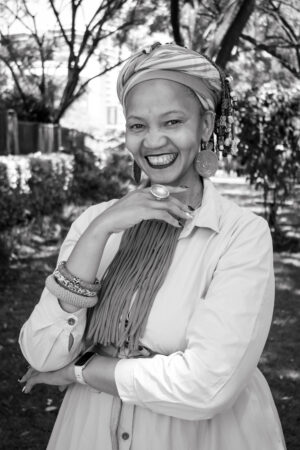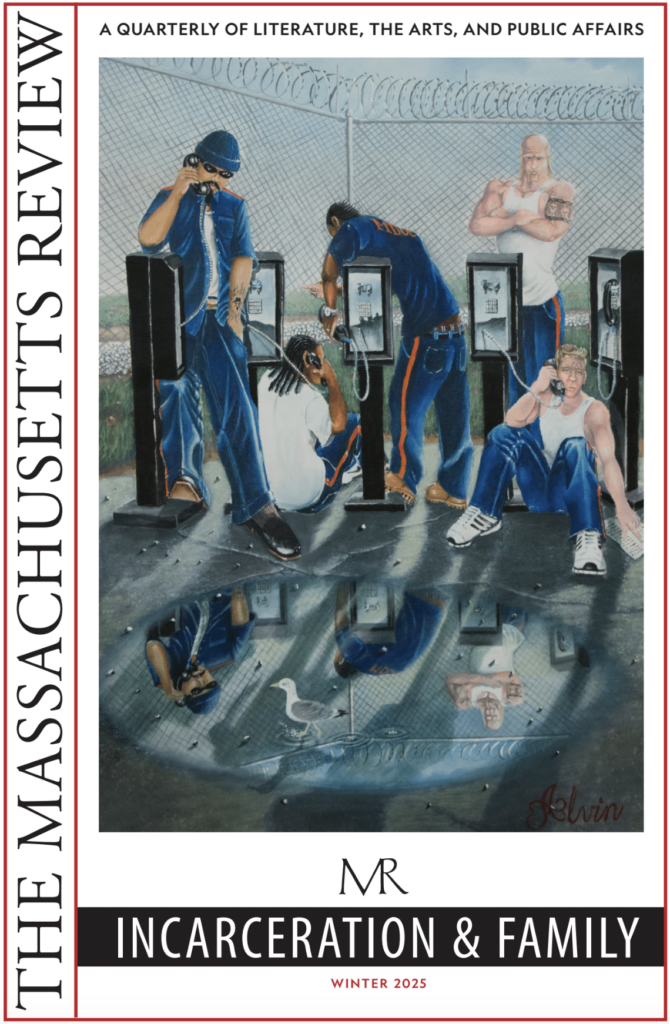Afrikan Feminism is Not Neutral

This piece first appeared on African Feminism.
As people living at the intersection of multiple oppressions, legacies of slavery and colonialism, and neocolonial capture of our nations, we must remain extremely vigilant for erasure and appropriation of our voice and agency. African feminisms cannot exist in spaces where struggles of other colonized peoples are silenced, or worse still, be comfortable with institutions that are extensions of the machine feeding the annihilation of Palestinian lives and dreams. We have to remain accountable to ourselves and to many interlinked struggles on our continent and beyond, to keep our own hopes of freedom alive.
– Rosebell Kagumire, pan-African feminist writer and editor at African Feminism
The Goethe-Institut Johannesburg hosted an African Feminisms Gathering from 25 to 28 September 2025, convened by the House of African Feminisms. I had been invited, and after reflection, I wrote to withdraw and to protest the very concept. While this space should be one of solidarity and fearless feminist analysis, the position of the German government makes it profoundly unsafe.
Goethe-Institut advances German state priorities and agendas across culture, language and political life. Given the continued denial of a free Palestine by the German government and its institutions, the hosting of an Afrikan Feminisms gathering at this time of genocide does not provide an avenue of true transnational feminist solidarity.
On 22 September 2025, German Foreign Minister Johann Wadephul declared: “A Palestinian state is our goal. We support the two-state solution. There is no other way. This, however, must be achieved through negotiations … Recognition of Palestine will come more at the end of the process.” This statement follows the earlier assertion on 25 July 2025 that Germany “will not recognize Palestine as a state in the short term,” despite mounting international pressure. These positions make clear that Germany refuses, here and now, to recognize Palestinian sovereignty, and instead props up a permanent limbo that denies Palestinians their right to self-determination.
At the same time, Germany remains materially implicated in sustaining Israel’s war machine. Since October 2023, it has approved over €485 million worth of arms exports to Israel, including weapons systems, ammunition, and parts for armored vehicles. This contradiction—withholding recognition while supplying arms—reveals the deep entanglement of German foreign policy with the political economy of occupation.
As an Afrikan feminist, I cannot ignore this political economy of war. Gaza and the West Bank are not only sites of military violence but of an extractive war economy where arms industries, surveillance firms, and foreign governments profit. Manufactured scarcity—of food, water, electricity, and medicine—is weaponized. Women, as caregivers, workers, and heads of households, are left to absorb the devastating social and bodily costs.
To silence feminist voices on these issues is to endorse a system that treats women’s lives as collateral damage.
Afrikan feminism is inextricably linked to anti-colonial and anti-imperial struggles, and Palestine is no different. Afrikan countries have for decades recognized the state of Palestine and have actively supported Palestinian freedom. Pan-African feminism has always been rooted in solidarity with colonized peoples of the world, not with their oppressors.
As Nalafem Collective reminded us at the start of Israel’s genocide: “The racist dehumanisation of the Palestinian people has always been a means for the apartheid state of Israel to pursue its settler colonial project, and justify atrocities committed to that end.”
Youmna El-Sayed, the Gaza Strip correspondent for Al-Jazeera, says: “The occupation has tried to make us give up on our lands, but just like our grandparents 76 years ago, we will not surrender. Defending Palestine is about defending humanity. Silence is complicity in this genocide.”
Each day of Palestinian survival is an act of resistance.
Our struggles are connected. Feminist solidarities extend to Sudan, Somalia, Tigray, Western Sahara and the Democratic Republic of Congo—sites where global arms trades, authoritarian regimes, and extractive economies drive catastrophe.
In my attempt to understand the political process that informed the Goethe-hosted African Feminisms Gathering, I noted these absences:
- Safety and uncensored speech. Instead, we face the constant risk of censorship when naming settler occupation, apartheid, or genocide.
- Recognition of Afrikan feminist political traditions. Instead, our voices are curated and sanitized for institutional comfort.
- Protection of autonomy and thought sovereignty. Instead, Western right-wing authoritarianism contaminates our spaces and polices our thinking.
- Genuine solidarity. Instead, convenings proceed as though Afrikan feminism can be separated from anti-imperial resistance.
The worst part is that this is happening on South African soil, where both feminist and anti-apartheid workers have for decades consistently confronted and organized against the Israeli occupation.
It is only recently that Germany has recognized its orchestrated genocide against the Ovaherero and Nama peoples of Namibia, the first genocide of the 20th century, and its colonial crimes in Tanzania. However, the German government refuses to commit to legally binding reparations agreements.
Afrikan feminist anti-colonial efforts must not be usurped and reduced to the ahistorical catchphrase of rights, representation, and resources. Whose rights? Whose resources? Representation at a colonial table, where our silence is complicit in ongoing catastrophe?
We, as Afrikan feminists cannot afford to be divorced from the global carnage that empires, German among them, are inflicting through imperial extraction and occupation. Imperial spaces will not save us. Any gathering in the name of Afrikan feminism must not be allowed to ignore Palestine. The curation of Afrikan feminism by organs of imperial states endangers freedoms across the continent that generations have fought for.
The consequences of Israel’s ongoing genocide of Palestinians will not remain in Palestine. Afrikan feminisms, therefore, cannot be housed under foreign policies of the German government that refuse accountability, and actively enable the current siege and extermination of the Palestinian people.
Some of us may withdraw in protest, while others may participate, carrying these contradictions. But I cannot be silent in the face of global and historical catastrophe. To host an Afrikan Feminisms Gathering that curtails solidarity with Palestine—or with other Afrikan and Global South struggles—is to betray the very spirit of Afrikan feminist resistance. Afrikan feminism is not neutral. It is not comfortable. It is rooted in struggle, and it will not be censored.
Dr. Lebohang Liepollo Pheko is a political and feminist economist, decolonial feminist, and activist scholar, with over 25 years of global impact. She is an international movement builder committed to intersectionality and rigorous research in movement struggles against imperialism and globalisation.
Twitter/X: @Liepollo9 @TradeWarriors



